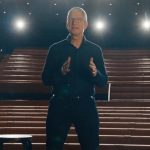The 36-year-old royal sat down with Oprah Winfrey in the AppleTV+ documentary series, The Me You Can’t See, which the pair co-produced.The Duke of Sussex is heard reflecting on the death of his mother, Princess Diana, in 1997, and how his buried grief impacted his life up until he sought therapy recently.Harry, Meghan fight that changed everythingPrince Harry tells Oprah in the docuseries that he began therapy four years ago.While those closest to him had been urging him to seek help for some time, it was an “anger” driven argument with then-girlfriend Meghan that forced him to see it through.“I quickly established that if this relationship was going to work, that I was going to have to deal with my past because there was anger there. It wasn’t anger at her, it was just anger, and she recognised it,” Harry says.During their argument, Harry said he “reverted back to 12-year-old Harry”, before Meghan suggested he see someone.Traumatic memories of paparazzi school tripsHarry said he has clear memories of sitting in the back seat with his brother Prince William on the way to school, with his mother, Diana, in the driver’s seat.Every day, he said, paparazzi chased them and reduced his mother to tears.“When I think about my mum, the first thing that comes to mind is always the same one, over and over again: strapped in the car, seatbelt across, with my brother in the car as well, and my mother driving, being chased by three, four five, mopeds, with paparazzi on.“She was almost unable to drive because of the tears. There was no protection.”RELATED: Difference between William, Harry Diana statementsHe added: “One of the feelings that comes up with me all the time is the helplessness. Being a guy, but too young to be able to help a woman, in this case your mother.“That happened every single day, every single day until the day she died.”Diana’s death an out-of-body experience for HarryPrincess Diana’s funeral in September 1997 saw the entire world pause. Watching young Princes William and Harry walk in the procession to Westminster Abbey became the picture of pure heartbreak.As for how a then 12-year-old Harry was feeling inside, he said it was like he was “outside of my body”.“Sharing the grief of my mother’s death with the world … It was like I was outside of my body,” he said.“Just walking along doing what was expected of me. Showing one tenth of the emotion that everyone else was showing.“I was like, ‘This was my mum. You never even met her’.”RELATED: Harry, William’s deeply emotional statements on Diana findingsAfterwards, Harry said he buried his “head in the sand” for years to avoid immense grief.“I don’t want to think about her, because if I think about her it’s going to bring up the fact that I can’t bring her back,” Harry said.“It’s just going to make me sad. What’s the point of thinking about something sad, what’s the point of thinking about someone you’ve lost and you’re never going to get back again.“I was so angry with what happened. And the fact that there was no justice, at all, nothing came from that.“The same people that chased her into the tunnel, photographed her dying on the back seat of that car.”‘They’re not going to stop until (Meghan) dies’Harry compared the treatment of Meghan to that of Diana during the docuseries interview with Oprah.He declared, “History was repeating itself”.“My biggest regret is not making more of a stance earlier on in my relationship with my wife and calling out racism than when I did,” Harry said.“My mother was chased to her death while she was in a relationship with someone who wasn’t white. And now look what’s happened.”Harry is referring to Diana’s then-romantic interest Dodi Fayed, who died in the same car crash.“You want to talk about history repeating itself? They’re not going to stop until she (Meghan) dies,” Harry added.“It’s incredibly triggering to potentially lose another woman in my life. The list is growing. And it all comes back to the same people, the same business model, the same industry.”Harry also elaborated on the moment Meghan expressed she’d had suicidal thoughts, which she spoke about in their bombshell interview with Oprah back in March.The former actress, 39, opened up about her thoughts to Harry in January 2019 before they were due to attend an event at the Royal Albert Hall in London.Harry told Oprah in the docuseries that he was “ashamed” by how he responded to his then-pregnant wife, who detailed “the practicalities of how she was going to end her life.”“She hadn’t lost it, she wasn’t ‘crazy’, she wasn’t self-medicating, be it through pills or through alcohol. She was absolutely sober. She was completely sane,” Harry said.“The thing that stopped her from seeing it through was how unfair it would be on me.“After everything that had happened to my mum, and to now be put in a position of losing another woman in my life, with a baby inside of her, our baby, I am somewhat ashamed of the way that I dealt with it.”He said they only had time for a “quick cuddle” before they were due to arrive at their public appearance.RELATED: Diana’s interview changed royal family forever“I was ashamed that it got this bad. I was ashamed to go to my family, because to be honest with you, like a lot of other people my age could probably relate to, I know that I’m not going to get from my family what I need,” Harry said.London ‘is a trigger’Harry, who moved to the US with Meghan and their son Archie last year, said flying into London has been a “trigger” ever since he was a teenager.In the third episode of the docuseries, Harry is seen undergoing psychotherapy treatment – also known as EMDR treatment – in which patients are forced to confront traumatic memories.This is where Harry admits to his therapist Sanja Oakley that it’s difficult to visit the city where he grew up.“For me, London is a trigger, unfortunately, because of what happened to my mother and what I experienced and what I saw,” he said.“Being hunted, knowing that you are helpless … It all comes back, the trauma is very much geographical.”
Powered by WPeMatico






